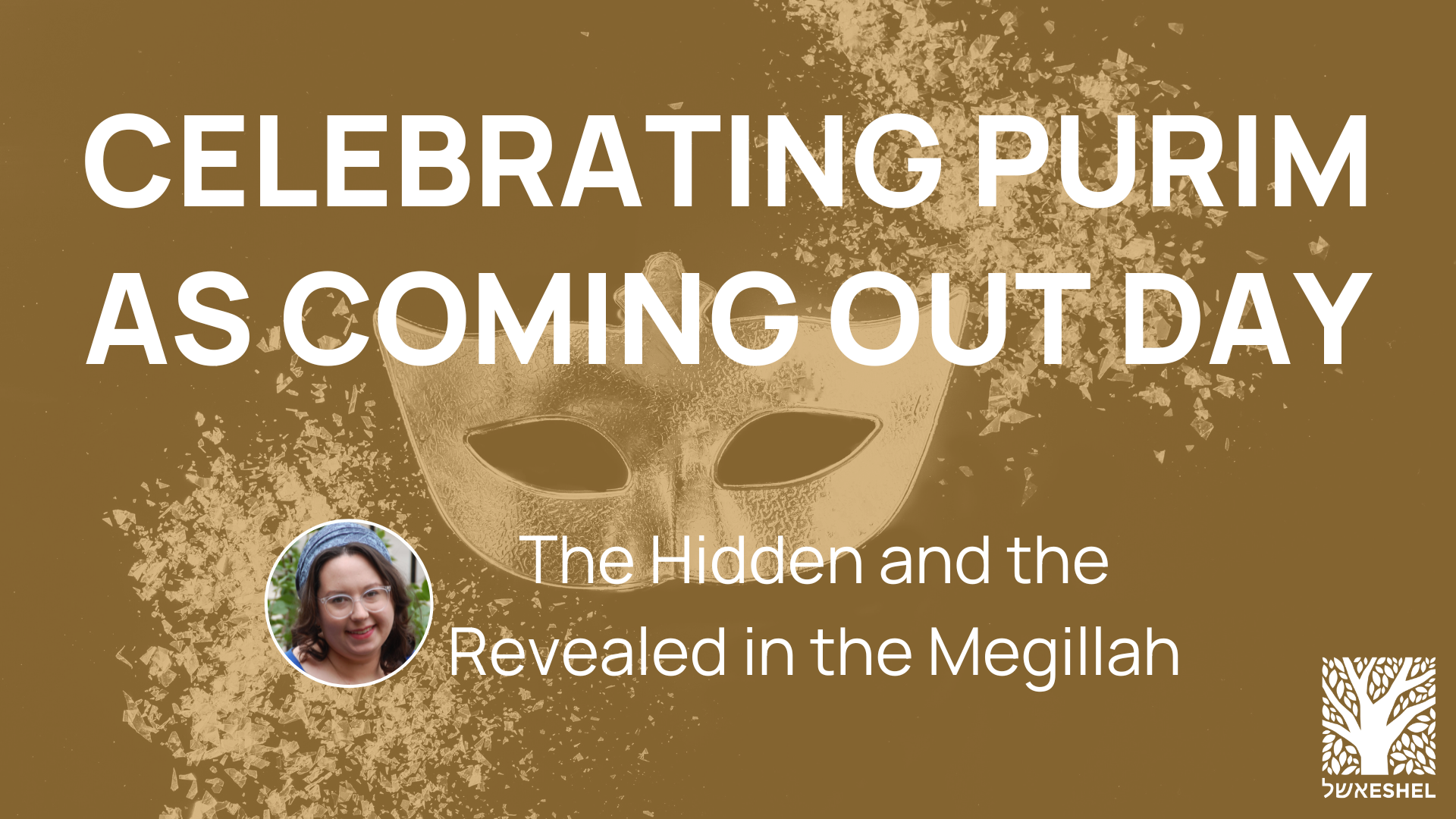
What would it mean to celebrate Purim this year as a National Jewish Coming Out Day? Whether for those of us who has been out for years, or those who have yet to come out, Purim is an opportunity to celebrate who we are, whether hidden or revealed.
As Rabbi Steve Greenberg has written previously, the megillah is replete with the theme of coming out. Achashverosh and Haman live double lives, hiding incompetence and evil behind their public masks. They fear their flaws being discovered. Esther and Mordechai choose to conceal themselves, for safety and to access power within the Persian court that would be threatened if others knew of their Jewishness.
The turning point of the megillah is when these masks begin to come off – Mordechai’s past good deeds to save the king are revealed, along with Haman’s greed. Esther reveals herself at the right moment – and by coming out, saves the Jewish people.
One way to celebrate the Coming Out stories of Purim is our costumed revelry – we get to try on new clothes, new selves, and relish in the joy of being free to put on and take off our masks as we please. Still, we must remember that many of us don’t have that freedom throughout the rest of the year – like Esther, revealing our true selves often carries enormous risk. This Purim, I am keeping in mind all my LGBTQ+ siblings who have to hide for their own safety, and I am advocating for a world that protects them better.
Another way we celebrate Purim as National Jewish Coming Out Day is through drag. As Rabbi Amichai Lau-Lavie practices it, “Purim is a very political holiday … [drag is] just another way to look at things from another perspective. So that we can do what court jesters have been doing for millennia, which is to tell the truth through the mask of art, or myth, or drag.” Purim reminds us that the truth can be hard to hear when spoken directly. Just as Esther carefully crafts her big reveal to Achashverosh, drag and other art forms including Purim spiels and grammen use comedy and artifice to convey hard truths. Although I won’t be dressing in drag this Purim, I am taking this day to heart to remember that I cannot keep silent. It is my responsibility to make others aware of some of the painful realities LGBTQ+ Jews face in our Orthodox communities.
Finally, Purim is a reminder that God is with us. As Rabbi Greenberg writes, “The rabbis describe the God of the Book of Esther as a hidden God, a playful God who dances in between the revealed and the hidden, patient and waiting for the right moment to burst forth.” Hashem knows what it is like to be in the closet, to have to wait for the right moment for revelation. Even in what may seem like the darkest times, when there is little holiness to be found, God is watching us from behind the scenes. Celebrating Purim as National Jewish Coming Out Day doesn’t mean that coming out is the only moment worth celebrating – there is holiness in the hidden as well as the revealed.

